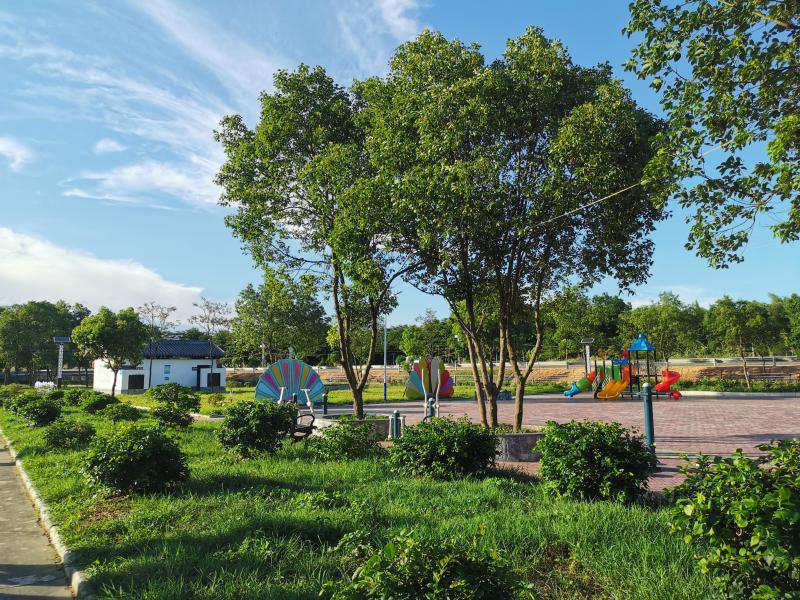Guangdong villages benefit from sewage renovations
China's efforts to improve rural living environment have yielded fruitful results in villages across Guangdong province.
Liang Wolin lived in a village with open drainage ditches for most of his life. On a hot day, which are most days in the year in southern China's Guangdong province, the smells of the ditches often get quite unpleasant.

Fortunately, things finally changed in 2020.
Last year, Xinhuang village in Kaiping city replaced its open drainage ditches with an underdrainage system separating rainwater pipelines and sewage ones.
In addition, the village established compact sewage treatment facilities in the neighborhood in cooperation with a state-owned company. The facilities are also regularly monitored and inspected by the maintenance staff.
Now, standing in front of a clean pond, 65-year-old Liang could hardly restrain his joy, as he talked about his new life after a series of environmental renovations that took place in his village.
"The renovation was free of charge and did not cost the villagers a single penny." Liang said people in the village widely welcomed the changes, which included the new sewage pipes, as well as wider and safe roads. The village has become an example of success for sewage treatment renovations in Guangdong, and the days of stinky open sewage has already been put in the past.
Donghua village in Shantou city also carried out similar renovations to separate rainwater pipes and sewage ones, adding 18,870 meters of pipes in total and 868 sewage wells in six months.
After the sewage renovations and other environmental improvements, the village was named a "Beautiful Village" and a "Village of Beauty and Leisure" by China's Ministry of Agriculture and Rural Affairs. In addition, it also began to see economic gains.
Since last year, Donghua has turned from traditional crop plantation partly to grape planting and rural tourism. Thanks to the improved environment, the village's 3.35-hectare vineyard had two good harvests in its first year, and tourists started to flock in.
According to Weng Zhongtong, Donghua's Party secretary, the whole village as a cooperative earned an income approximately 2.5 times that of planting rice. He estimated that the income this year would rise even higher as the grape vines and their maintenance techniques improve.
The sewage renovations and environmental improvements in the Guangdong villages were part of a national plan to improve its rural living environment from 2018 to 2020. In February, the Ministry of Agriculture and Rural Affairs announced that the dirty, disorderly, and unsanitary parts of rural areas have been significantly improved over the years.
Nevertheless, the ministry said toilets and sewage treatment in rural areas continue to pose a major challenge, and that China will launch a five-year plan to further improve rural living environments.
According to Guangdong's provincial authorities, all villages in the province have now been equipped with hazard-free toilets, garbage collection and transportation systems, and centralized water supply systems. The provincial government has also listed rural sewage treatment as one of its 10 priorities regarding people's livelihood in 2021.

